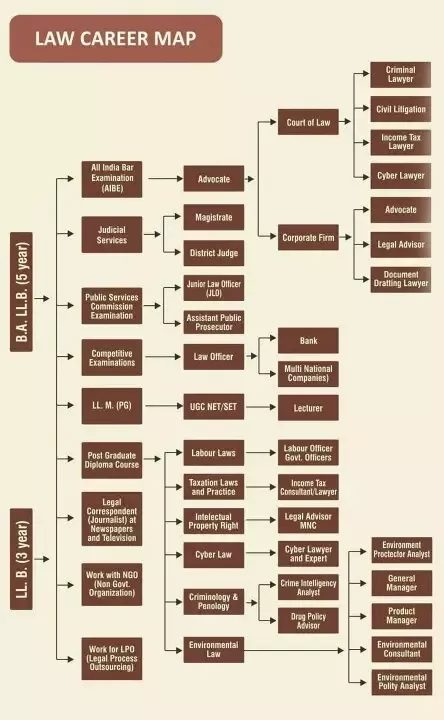Students pursuing LLB courses are often confused about the career options they can take up after graduation. They are often faced with questions like:
LLB graduates can choose to become lawyers or can practice law on their own. They can also work in the business field or as legal advisers.
Legal Practice
LLB is a law degree in the UK that gives you a solid foundation for a legal career. The course involves extensive reading and requires you to develop strong analytical and critical thinking skills. It also helps you to develop the ability to identify, evaluate and apply research in different contexts.
This course provides excellent job opportunities as a lawyer and legal advisor for firms, companies and families. You can also take up government jobs in the state and central levels. In this field, you will have to deal with cases like damage suits, guardian disputes, wills and inheritance, etc. In addition, you can pursue private practice.
The LLB is a three-year course, which includes seven compulsory modules and a dissertation. Many universities also offer a range of optional modules, which allow you to specialise in particular areas of law. Some universities even offer five-year courses, combining an LLB with a BA or BSc Hons.
This degree is a good choice for students who want to work at the intersection of business management and law. It can lead to a variety of career options, including working as a legal probation officer in banks and working for the legal department of companies. Students can also pursue private practice, or work in the publishing and media industries as lawyers or legal advisors.
Administrative Roles
There are a number of administrative roles that you can pursue with a BA LLB. These can include jobs in the executive body of the government, such as being a part of the department of legal affairs. You can also work with sales tax and excise departments, international organisations, and regulatory bodies. Alternatively, you can take up a position with a real estate firm and handle the administration of properties on behalf of property owners or companies. You may even choose to work with a development organisation that focuses on legal aspects of projects, such as human rights or access to justice initiatives. Civil services are another option, which you can prepare for by taking competitive exams like the UPSC or SPSC. This can give you a top job in the government as an IAS officer, IPS officer, or ICLS officer.
Business Law
Business law is the body of legal laws that protect stakeholders’ interests when there are agreements between companies or individuals. Be it a corporate merger, real estate investment, or two parties selling an asset to each other, businesses rely on this area of law to stay safe from lawsuits and settle disputes quickly and fairly. Business law includes everything from contracts to intellectual property, and it applies to all sizes of businesses, from sole proprietorships to multinational corporations.
A business law degree can open doors to careers in a wide range of industries. Students learn the key concepts of this field, including how to interpret and apply the law to a specific situation. They also develop the skills required to work as a team player and communicate effectively. This career can be highly rewarding for those who want to pursue a challenging but fulfilling path.
The BBA LLB is a unique interdisciplinary course that offers students the opportunity to study business management and law at the same time. The programme combines commerce-related subjects such as economics, accounts, and business studies with law-related topics like family law, criminal law, and international law. Students will leave the course with dual knowledge of both business and law, giving them a competitive edge in the job market. They will be able to apply their knowledge of both fields in the workplace and become leaders in their field.
Publishing and Media
Venable has extensive experience in advising publishing and media companies on complex legal issues involving both traditional print publishing (such as newspapers and magazines) and electronic media (such as news channels). Our attorneys are well versed in virtually every aspect of the law that affects publishing and the media, including intellectual property rights, commercial transactions, employment law, government contracting and litigation. Moreover, our attorneys also understand the unique and evolving challenges facing the media industry.










